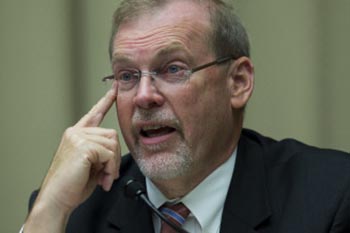Health Care Modernization
 Our health care system delivers what once seemed like miraculous outcomes every day. Its drawbacks, however, are well known. High costs, bureaucracy, and limited choices diminish the cures and treatments patients receive. These problems are deeply felt in rural areas in particular.
Our health care system delivers what once seemed like miraculous outcomes every day. Its drawbacks, however, are well known. High costs, bureaucracy, and limited choices diminish the cures and treatments patients receive. These problems are deeply felt in rural areas in particular.
Reforming health care requires lowering costs and streamlining the process of obtaining care without taking away its quality.
One route to make progress is by embracing new technologies and ways to deliver care. Outlining a vision to do so has been our task on the Subcommittee on Modernization, a part of the Healthy Future Task Force formed by Republicans in the U.S. House of Representatives to begin preparing health care policies for the next Congress.
The Subcommittee on Modernization, on which I serve, has focused on several core areas needed for health care services to fulfill their potential: safeguarding and maintaining expanded telehealth access, cracking down on fraud, waste, and abuse, and expanding access to innovative, patient-centered technologies.
I have long been a proponent of telehealth as a way for people living in remote areas or who have limited mobility to access health care. Telehealth had gradually advanced and become more available in previous years, but the coronavirus pandemic proved to be transformative. Federal and state agencies temporarily cut a lot of red tape around telehealth and expanded the services that were reimbursed by Medicare. Patients could receive care from their providers without being exposed to COVID-19, and hospital capacity could be reserved for the influx of coronavirus patients.
While restrictions around telehealth have been relaxed, patients have come to rely on it. This greater accessibility, however, is a product of emergency rules that will likely come to an end soon. Congress and the Centers for Medicare and Medicaid Services should act to make expanded telehealth permanent.
To learn more about the future of telehealth, I visited hospitals, as I often do, in Virginia’s Ninth Congressional District and talked with medical professionals about their work. During stops at Carilion Giles Community Hospital in Pearisburg and Ballad’s Smyth County Community Hospital in Marion, I saw what the future of health care could hold.
Even knowing that significant progress has been made, I was surprised to see just how advanced some of the technology was that the hospitals possessed. One device enables remote examinations of the ears, throat, lungs, heart, abdomen, skin, and temperature, giving medical providers the opportunity to rapidly offer a diagnosis and prescription to a patient in the comfort of his or her home.
During the pandemic, Ballad ran a program called Safer at Home that kept about 6,000 patients from coming to the hospital by offering telehealth services, an impressive figure.
Carilion officials said that they currently conduct around 300 telehealth visits per day. For these patients and those of other providers who offer telehealth, we need to find a way forward to maintain and expand services.
Another proposal I heard from the providers about concerned reciprocity between states in licensing for providers. Not letting them practice across state lines limits the number of providers, and in a region like ours that borders several states, we lose out on a significant pool of health care professionals.
A limitation of telehealth should not surprise anyone who has trouble with getting online at home: it requires reliable internet access. I am a proponent of building out broadband as well, but in the interim, I support Medicare reimbursement of audio-only visits. These, too, can make a positive difference in a patient’s health.
While the Healthy Future Task Force and its Subcommittee on Modernization are a project of House Republicans, telehealth is an area for broad bipartisan cooperation. Previous bills on the subject I’ve introduced drew cosponsors and support from across the aisle, and I believe we can continue to work together on it moving forward. So far, the task force has established policy pillars, which will provide a framework for developing legislation.
The expansion in telehealth use during COVID-19 constituted an experiment, and the results have been beneficial. We can grasp this opportunity to deliver on the promise of technology to increase access to care and produce healthier outcomes.
If you have questions, concerns, or comments, feel free to contact my office. You can call my Abingdon office at 276-525-1405, my Christiansburg office at 540-381-5671, or my Washington office at 202-225-3861. To reach my office via email, please visit my website at www.morgangriffith.house.gov. Also, on my website is the latest material from my office, including information on votes recently taken on the floor of the House of Representatives.









